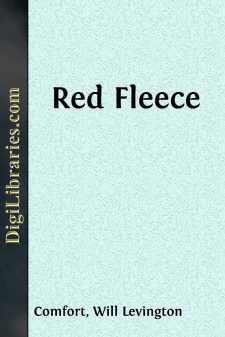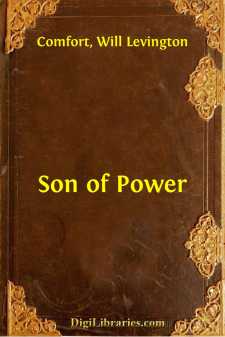Categories
- Antiques & Collectibles 13
- Architecture 36
- Art 48
- Bibles 22
- Biography & Autobiography 813
- Body, Mind & Spirit 142
- Business & Economics 28
- Children's Books 16
- Children's Fiction 13
- Computers 4
- Cooking 94
- Crafts & Hobbies 4
- Drama 346
- Education 46
- Family & Relationships 57
- Fiction 11829
- Games 19
- Gardening 17
- Health & Fitness 34
- History 1377
- House & Home 1
- Humor 147
- Juvenile Fiction 1873
- Juvenile Nonfiction 202
- Language Arts & Disciplines 88
- Law 16
- Literary Collections 686
- Literary Criticism 179
- Mathematics 13
- Medical 41
- Music 40
- Nature 179
- Non-Classifiable 1768
- Performing Arts 7
- Periodicals 1453
- Philosophy 64
- Photography 2
- Poetry 896
- Political Science 203
- Psychology 42
- Reference 154
- Religion 513
- Science 126
- Self-Help 84
- Social Science 81
- Sports & Recreation 34
- Study Aids 3
- Technology & Engineering 59
- Transportation 23
- Travel 463
- True Crime 29
Red Fleece
Description:
Excerpt
THE WOMAN AND THE EXILE
Peter Mowbray first saw her at the corner of Palace Square nearest the river. He was not in the least the kind of young man who appraises passing women, very far from a starer. At the instant their eyes met, his thoughts had been occupied with work matters and the trickery of events. In fact, there was so much to do that he resented the intrusion, found himself hoping in the first flash that she would show some flaw to break the attraction.
It may have been that her eyes were called to the passer-by just as his had been, without warning or volition. In any event their eyes met full, leisurely in that stirring silence before the consciousness of self, time, place and convention rushes in. … Though she seemed very poor, there was something about her beyond reach in nobility. He was left with the impression of the whitest skin, the blackest hair and the reddest lips, but mainly of a gray-eyed girl—eyes that had become wider and wider, and had filled with sudden amazement (doubtless at her own answering look) before they turned away.
Desolation was abroad in Warsaw after this encounter. Mowbray thought of New York with loneliness, the zest gone from all present activity. Presently with curious grip his thoughts returned to a certain luncheon in New York with a tired literary man who had talked about women with the air of a connoisseur. The pith of the writer's observations was restored to his mind in this form:
"If I were to marry again it would be to a Latin woman—French, Italian, even Spanish—a close-to-nature woman born and bred in one of the Mediterranean countries. Not a blue-blood, for that has to do with decadence, but a woman of the people. They are passionate but pure, as Poe would say. If they find a man of any value, he becomes their world. They are strong natural mothers—mothering their children and their husband, too,—and immune to common sicknesses. Given a little food, they know enough to prepare it with art. If a man has a bit of a dream left, such a woman will either make him forget it painlessly, or she will make it come true."
There was no apparent relation, and none that proved afterward. What he had seen at the corner of Palace Square nearest the Vistula was not the face of a Latin woman, nor was any looseness of common birth evident in it. The key might have had to do with the little hat she wore, just a hat for wearing on the head, a protection against sun and rain, and with the austerely simple black dress; but these weathered exteriors again were effective in contrast to the vivid freshness of her natural coloring. As for what remained of the literary man's picture of the ideal woman to marry, it was the last word of decadence—the eminent selfishness of a man willing to accept the luxury of a woman who asks little to be happy. … The next day at the same time and place Mowbray was there, and saw her coming from afar.
She seemed both afraid and angry, stopped abruptly and asked in Polish what he wanted. He was startled....




